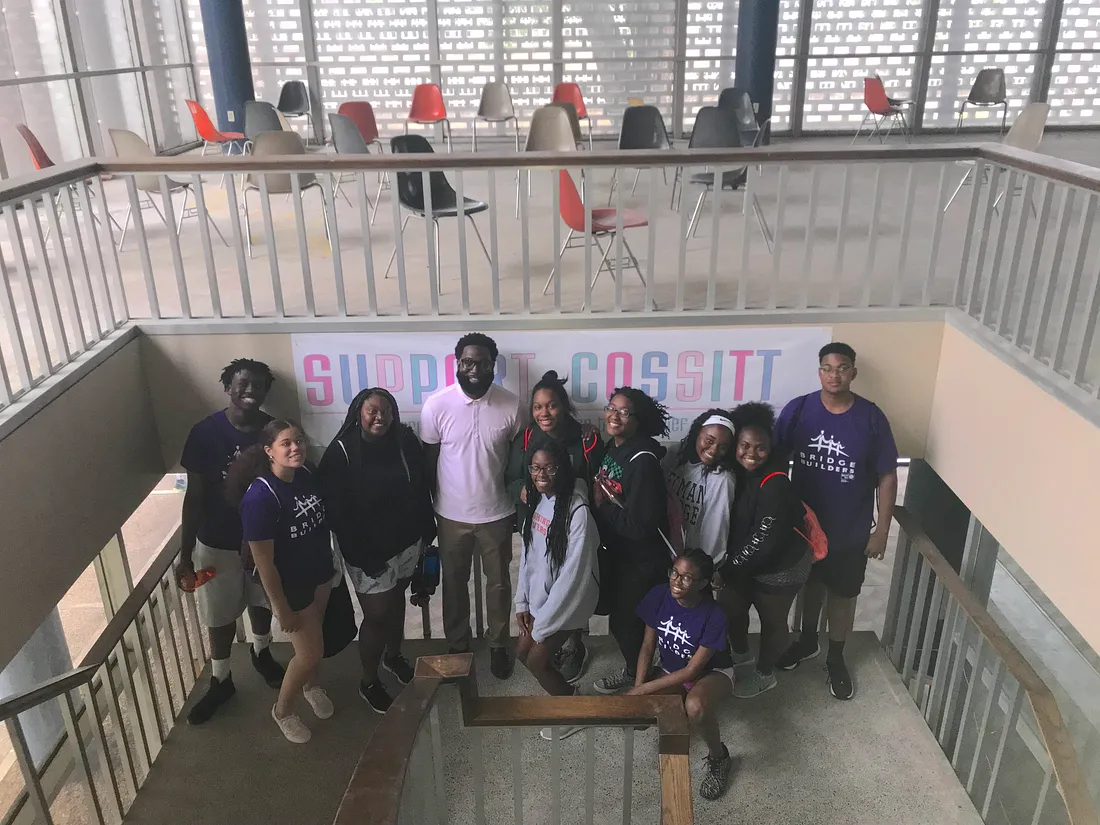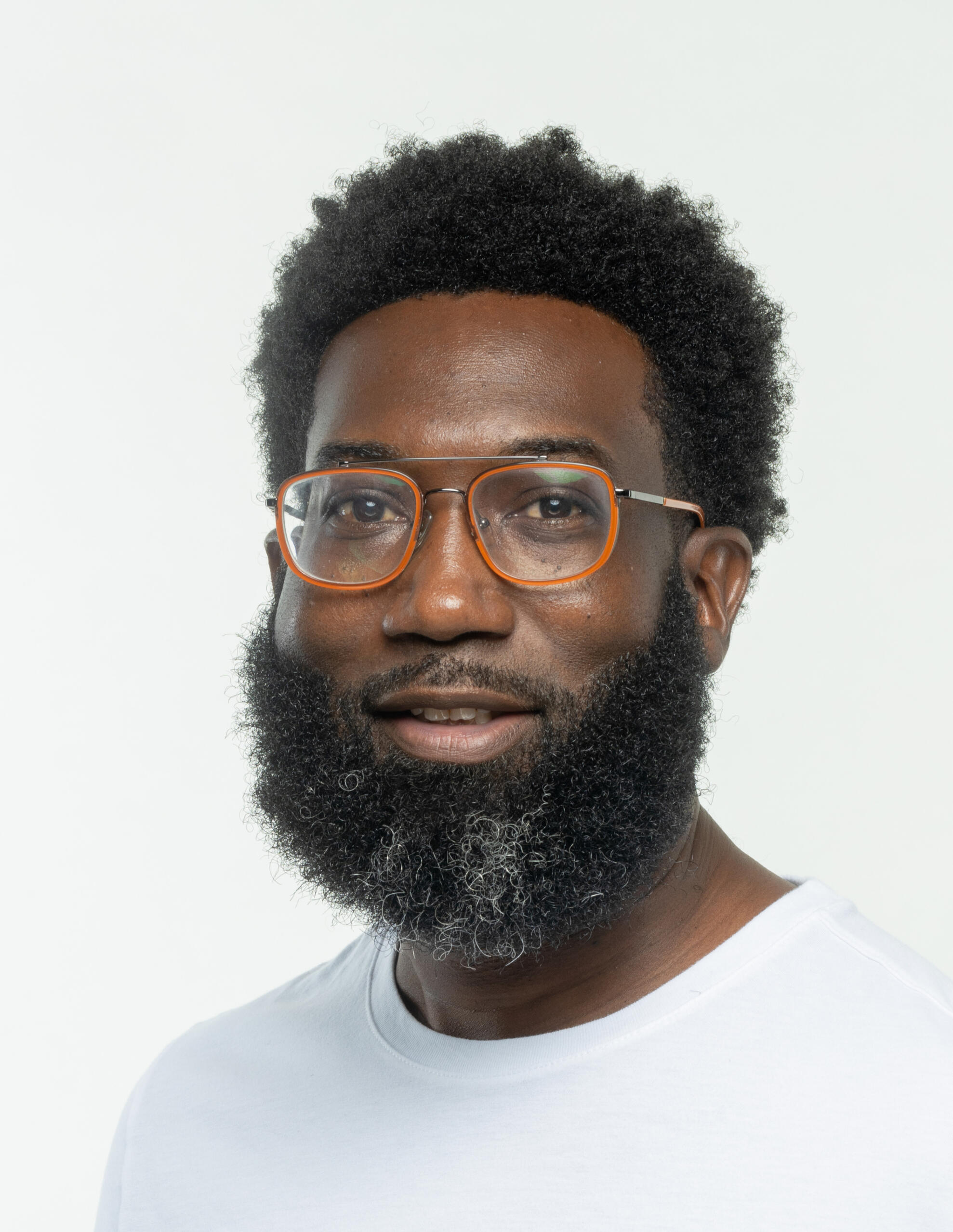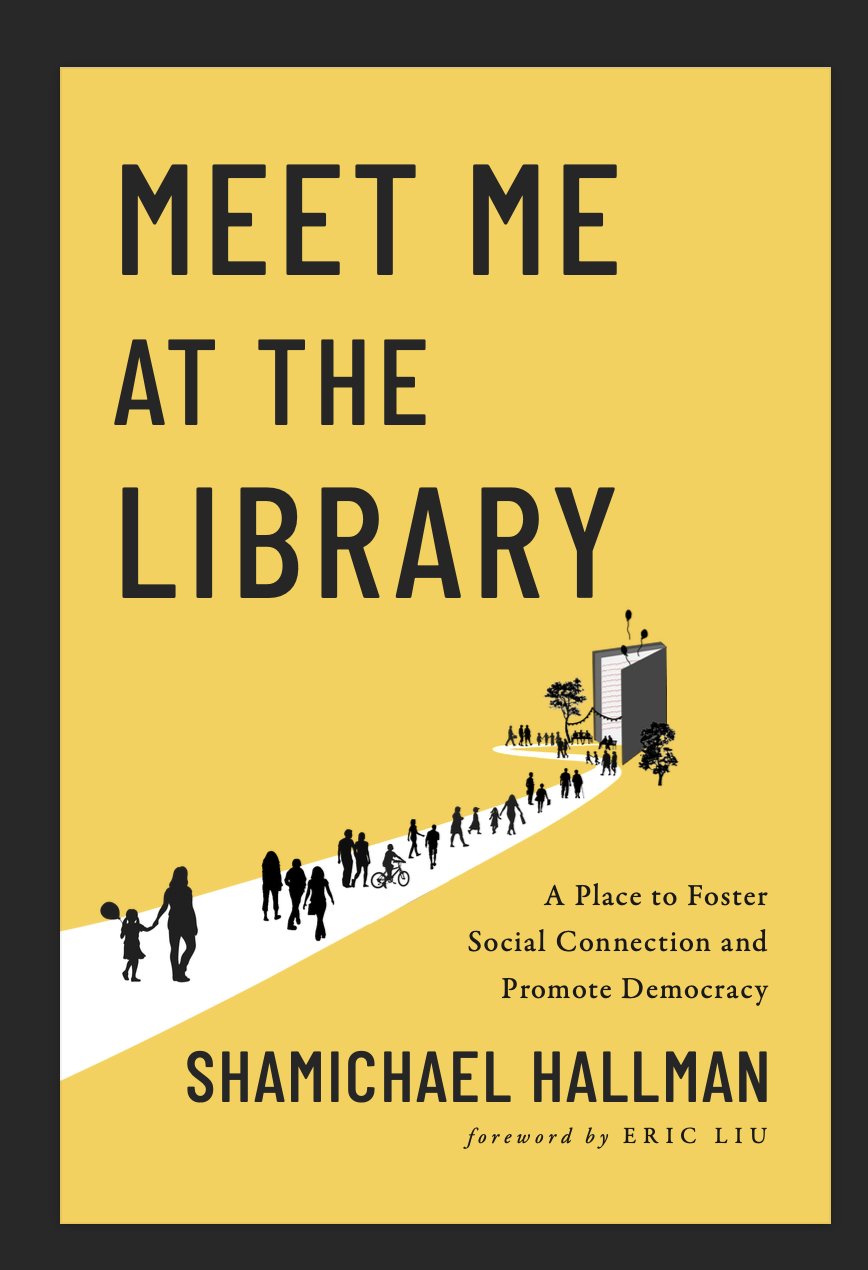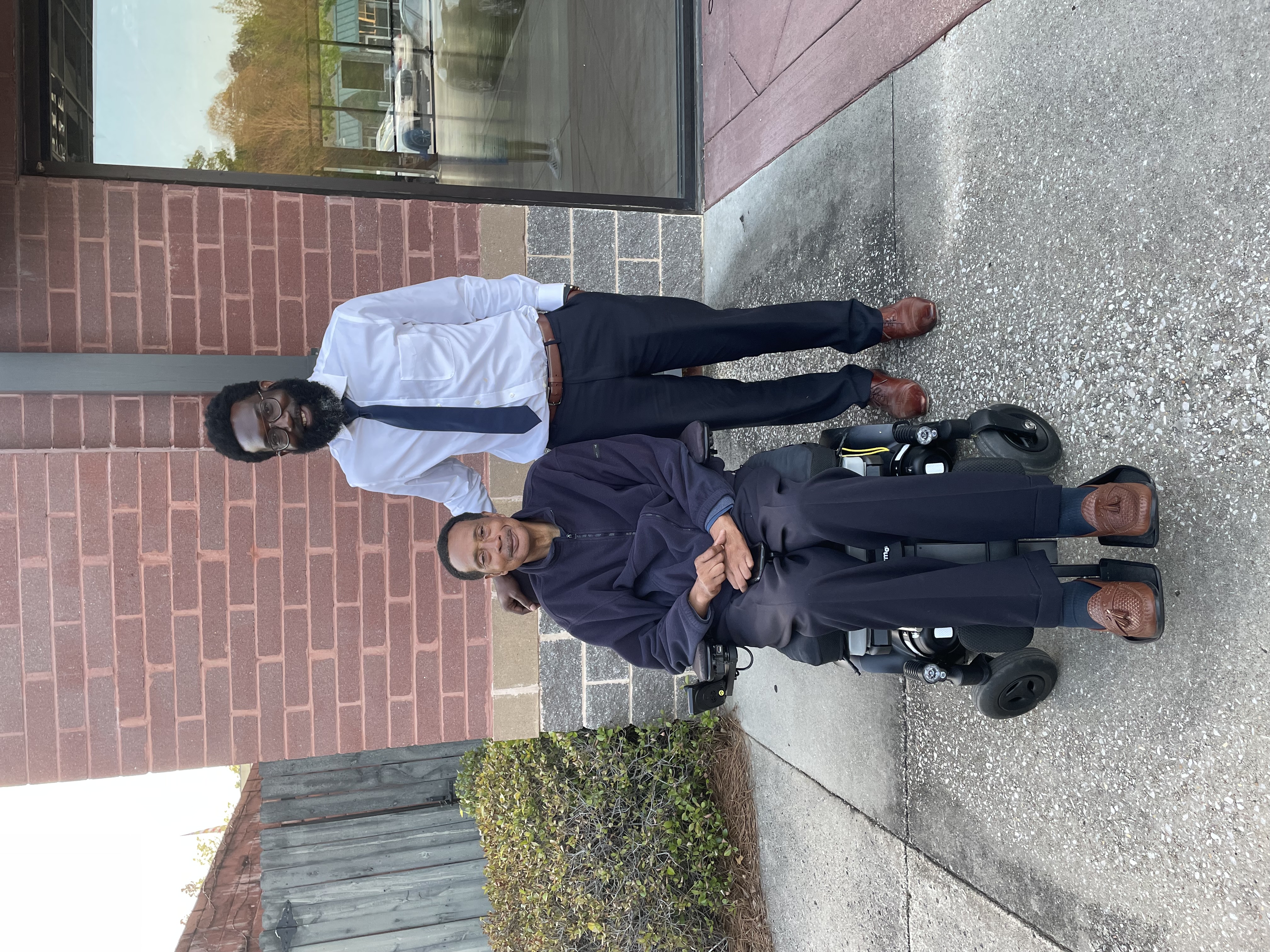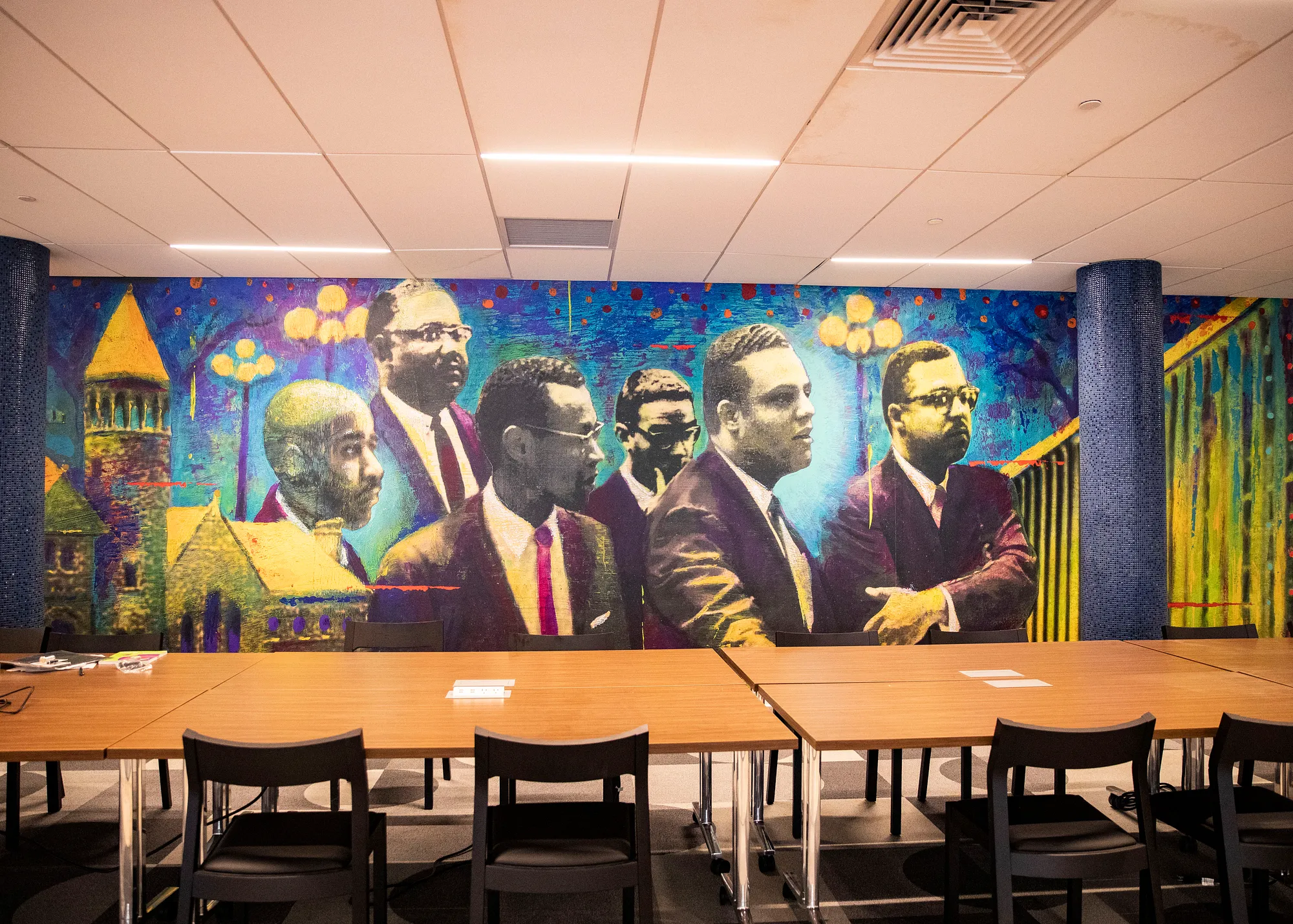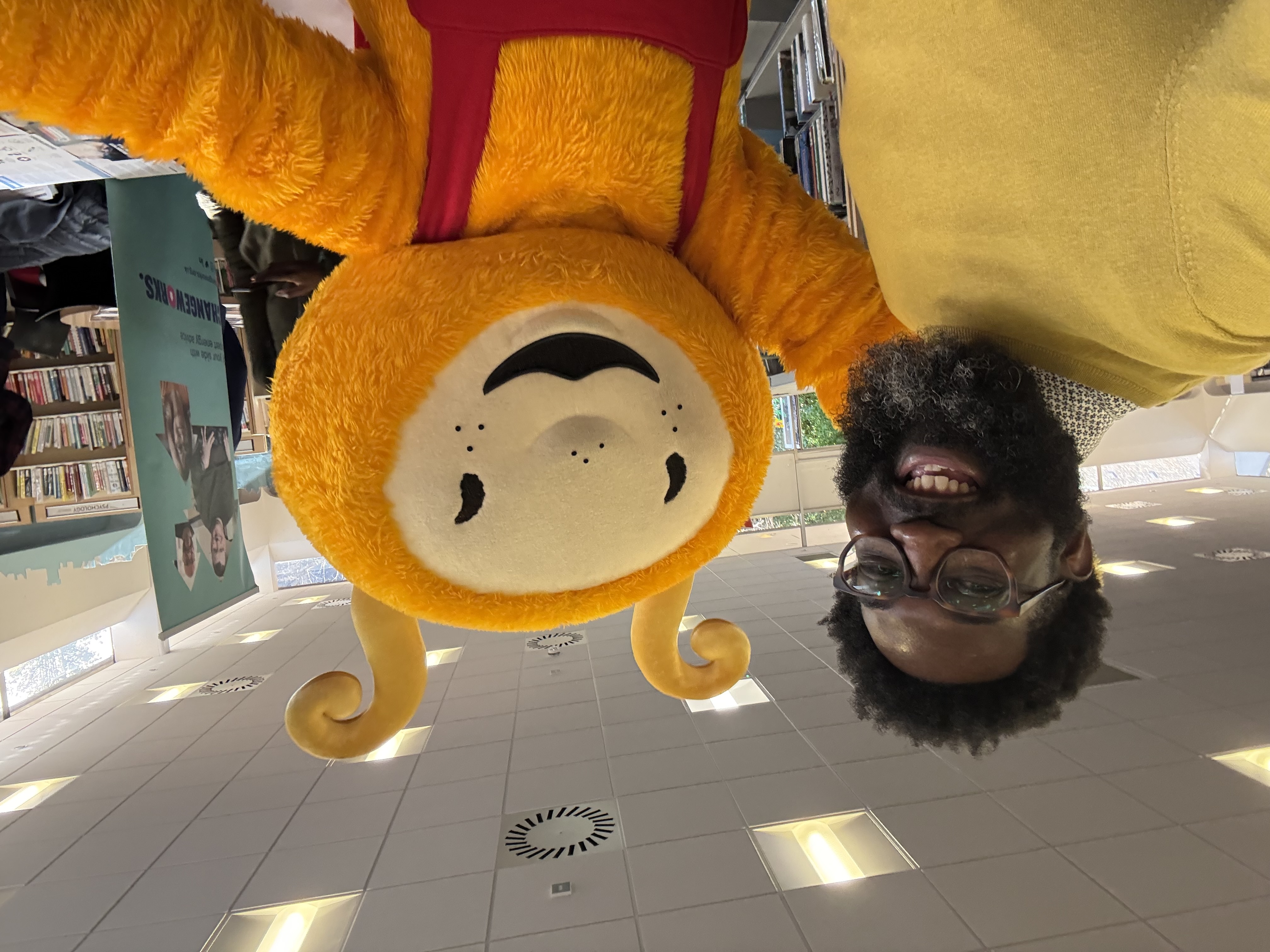
The calluses and scars on Shamichael Hallman’s hands serve as lasting reminders of the frigid Alabama winters he spent as a 20-year-old logger, cutting and bundling 20-foot cedar logs in a Birmingham lumber yard—timber destined to build homes.
“I’d get these one- or two-inch splinters lodged deep in my hands, sometimes needing a knife to dig them out,” Hallman recalled. “But that experience gave me a deep respect for the workers who do this every day and showed me that a hard day’s work is full of dignity.”
That humbling chapter, along with others—caring for a disabled parent and growing up in a community shaped by the legacy of segregation—became the foundation of Hallman’s commitment to fostering spaces of belonging, both physically and digitally, for people from all walks of life.
As Director of Civic Health and Economic Opportunity with the Urban Libraries Council in Washington, D.C., Hallman is focused on transforming city and county libraries into dynamic spaces that bring together people from diverse backgrounds—spaces that, he believes, are integral to both public safety and public health.
And for Hallman, the Othering and Belonging Institute’s Places of Belonging principles have been a guiding force that he has leveraged to create inclusive civic spaces.
“A foundational aspect of the library is that it is a home for books,” said Hallman, a Loeb Fellow graduate from Harvard University’s School of Design, where he has also guest lectured on the significance of libraries. “But it’s also a place where people from all walks of life can connect, learn, and belong. And OBI has helped me not only think about the beauty of bringing different people together in these spaces, but also the tension that comes with that, and how to deal with that tension.”
Hallman recently published Meet Me at the Library: A place to foster social connection and promote democracy, a book highlighting how public libraries create shared experiences and foster a sense of community. Othering and Belonging Institute Director john a. powell said Hallman’s work is crucial in promoting civic engagement and discourse that helps to bridge across differences.
“Shamichael gives us the tools to view libraries through a communal lens, and to understand the impact they can have on our local economies, public health and way of life,” said powell. “It’s a vision that seeks to transform these historically exclusive spaces into places where everyone belongs.”
We recently spoke with Hallman about the roots of his advocacy for creating public spaces of belonging, and how OBI’s work has impacted—and continues to shape—his mission.
OBI: What is an important characteristic community leaders should have when attempting to create spaces for people to feel like they belong?
Shamichael Hallman: I believe empathy is essential. It helps us recognize that people come from a wide range of backgrounds and experiences. When we lead with empathy, we're more likely to adjust our policies, systems, and environments in ways that truly transform physical spaces into places of belonging.
And empathy isn’t just something you’re born with—it can be learned.
How can it be learned?
Let me share a personal example. When I was five years old, my father was in a car accident that left him paralyzed. He survived, but he became a quadriplegic with severely limited mobility. I remember visiting him in the hospital and asking, “What can I do? How can I help you?”
From that young age, I became one of his caregivers—helping him with daily tasks like bathing, dressing, and eating. These were responsibilities my peers didn’t have. Later, when he regained some independence and began driving again, I accompanied him everywhere.
This was before the Americans with Disabilities Act, so I witnessed firsthand how the world wasn’t built for people like him. There were no ramps, no designated parking spaces, narrow aisles—constant barriers. I remember going to the grocery store and seeing how few handicap spots were wide enough for a wheelchair lift. Sometimes, my dad had to park far away or take up two spots just to make it work.
It frustrated me, especially when I saw others parked in those spaces without a visible need. I remember saying something to my dad, and he gently reminded me: “Not all disabilities are visible.” He encouraged me to have empathy and not assume what someone might be going through just because I couldn’t see it.
That moment was pivotal.
It helped me begin to understand that how we build our communities—how we design our cities, create our systems, and treat one another—has a deep impact, often in ways we don’t immediately recognize.
What a precious gift your father gave you in that specific moment.
Absolutely.
When did you first realize OBI was a place that could catalyze your public service goals?
About seven years ago, I was working alongside library leadership in Memphis to renovate and reimagine a historic library, and our director had flown out to Berkeley for an OBI Conference. She came back and told me there was this guy that she thought I would love and that I should look him up — john a. powell.
So, I researched john and OBI’s frameworks of belonging and bridging and, man, I found the exact language that I had been looking for. It helped me personally understand what I was really trying to achieve.
The ways that OBI’s frameworks talk about belonging and the materials that are offered really helped me not only think about the beauty of bringing different people together, but also the tension that was there and how to deal with that tension.
How do you begin to deal with that tension?
Bringing people together across differences requires an understanding of a community’s history.
The library renovation in Memphis gave me the perfect project to use what I was learning from OBI . Once a segregated city, Black residents were barred from the library until a 1957 lawsuit, and 1960 sit-ins, led to desegregation. Many of those activists, I have since had the honor of meeting, were young Black college students. Sitting across from them, I realized that because of their courage as teenagers, I — a Black man—was now leading the library’s renovation.
They reminded me that public spaces are always contested. “There will always be a group of people they try to exclude,” they told me. "You must keep fighting to make sure everyone belongs.”
It was a moment that I never forgot. Knowing the history grounds you in the purpose, and where tensions come from.
How did you go about finding points of connection in these spaces?
When I was a Loeb Fellow at Harvard in 2022, I explored a central question: What is the role of public space in an increasingly divided society? Immersed in design, social science, and faith, I engaged with scholars who were examining this issue from multiple perspectives. This experience deepened my understanding of what it takes to create truly inclusive spaces. As part of my research, I visited libraries of various sizes across New England to observe what was already working—and to identify areas where new opportunities might emerge.
Reflecting on my time in Memphis, I realized that bringing together people who have rarely shared space requires careful attention. One key insight is that people need to have the skills to belong. It takes empathy and a level of tolerance to be in an authentic relationship with those who are different from you. Listening to their stories helps you understand the experiences and perspectives that shape their lives—and from there, you can begin to uncover meaningful points of connection.
OBI’s belonging frameworks were instrumental in guiding my thinking. And the fellowship offered a valuable opportunity to reflect on the work I had done in Memphis using those frameworks—for instance, when we opened the library’s doors to host a community dinner table.
That event was intentionally designed to bring together housed and unhoused members of the community for a shared meal and conversation. Over the course of a few hours, people who arrived as strangers—some with tension or skepticism—left with a deeper understanding of one another and a shared sense of connection.
Who would have known such a simple idea could have so much impact!
Most definitely. That happened at the Memphis Cossitt Library, which today looks very different from a traditional library. It now features a café, performance spaces, coworking areas, and recording studios. But even before that renovation—when the building was still a shell of its former self—we were able to activate it as a real community hub, offering a vibrant and inclusive environment.
And these spaces of connection don’t have to be physical. Just as OBI has used webinars and digital content to bring their belonging frameworks to life, I saw similar possibilities during my time as the Online Campus Pastor at a 3,000-member congregation in Memphis from 2010 to 2016. In that role, I worked to build and nurture a sense of belonging in digital spaces. Week after week, we used online platforms to connect people through shared faith, common interests like book clubs, and mutual goals such as professional development and upskilling.
That groundwork proved especially powerful during the pandemic. Because we had already helped people form meaningful connections online, even something as simple as a shared ritual—like taking communion or singing together via livestream, in chat rooms, or open Zoom rooms—became a source of comfort and community.
It was a clear example of faith-inspired innovation meeting a moment of deep need.
And you’ve taken these experiences with past projects, and successes, to write Meet Me at the Library: A Place to Foster Social Cohesion and Democracy. What do you hope the book does for people who read it?
Well, the book I think speaks to this time of polarization and isolation that we are living in, and I advocate that we need spaces where everyone belongs, and libraries are uniquely positioned to serve that role.
I believe that libraries are books and more. They are places where people from all walks of life can connect, learn, and belong. I hope people get from the book an understanding that strengthening our libraries means strengthening our civic health and democracy. These are spaces for dialogue, informed citizenship, and connection.
One of my major projects, the Library Bridge Building Project, maps initiatives and policies nationwide to make libraries more inclusive in this way.
And why do you think is it important for libraries to be prioritized at this moment in time?
For one, our society is facing a well-documented loneliness crisis—something the U.S. Surgeon General and others have raised alarms about. At the same time, we’re seeing rising levels of polarization, where even family members are struggling to stay in conversation with one another. That reality calls for more than just traditional forms of social infrastructure—it demands a strong civic infrastructure as well. One that can foster social cohesion, support civic renewal, and uphold the ideals of a healthy democracy in the 21st century.
Libraries are uniquely positioned to fill these crucial roles. They serve as accessible spaces where people can gather, learn, connect, and be in dialogue across differences.
This year, my organization is partnering with two others to develop a training program that equips librarians to meet these challenges head-on. And I'm hopeful that OBI's belonging frameworks will continue to shape and strengthen this effort in meaningful ways.
